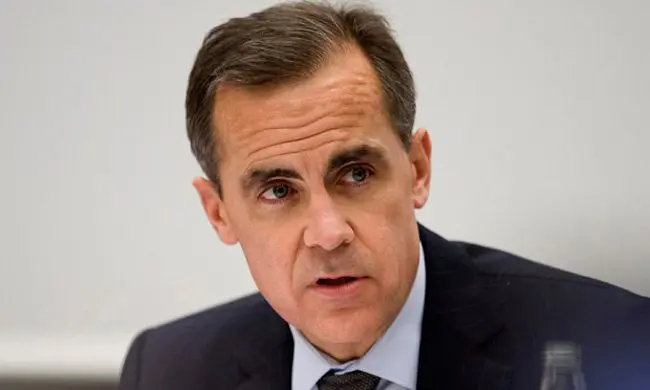Rates could start to rise this year and are expected to stabilise at 2.5pc by the first quarter of 2017, reports The Telegraph.
That is half the pre-crisis level of five per cent, as high household debt and changes to the banking system creates a “new normal” that keeps rates low for years, Mr Carney said.
Asked whether the first rate rise would come this year or early next, Mr Carney said it could be “any of those”.
Mr Carney has been accused of behaving like an “unreliable boyfriend” by MPs after indicating rates could rise from their historic low of 0.5 per cent this year, before backing off, saying wages remain too low.
The Governor said it was important to focus on the “big picture” of whether mortgage holders and businesses would be able to service their debts over the medium term in case of a rate rise.
The “vulnerable position” of family finances means any increases will be “more limited and more gradual than in the past”.
“The old normal is not the new normal. It is not likely to be the new normal,” he said.
Rather than rates going back up to five per cent, “if you look at financial markets, their estimation over three years is around, let’s call it, 2.5 per cent – could be slightly lower, could be slightly higher,” Mr Carney said.
“Why is that the case? Things have changed. Households have a lot of debt. The Government is consolidating its financial position. Europe is weak. The pound is strong. The financial system has been fundamentally changed – it has to carry a lot more capital, it has lot carry a lot more liquidity insurance and it will pass on those costs to borrowers.
“As a consequence of all those factors, in order to bring the economy back to full employment, in order to get inflation at target, the new normal is materially lower than the old normal.”
The recovery has proved to be “even better” than Mr Carney’s initial estimations, he added.
The Governor was speaking the day after the Bank’s financial policy committee announced new curbs on mortgage lending to prevent the housing market boiling over and harming the wider economy.
Mortgage borrowers will be denied loans unless they can prove they would still be able to cover the repayments if interest rates rose by 3 per cent, the Bank said yesterday.
The “stress test” will require lenders to scrutinise each applicant’s income and spending habits to judge whether an increase within five years would derail their finances.
George Osborne, the Chancellor, said he “fully supported” the proposal, part of a package introduced to curb risky lending and keep rising house prices in check.
“I want to protect those who own homes, protect those who aspire to own a home, and protect the millions who suffer when boom turns to bust,” Mr Osborne said. The Bank of England said that if interest rates rose by 3 per cent and incomes remained unchanged, a fifth of households with mortgages would have to “curtail significantly their spending or seek to earn more”.
It has asked lenders to check that a person who took out a typical 3.5 per cent mortgage today, for example, would be able to afford repayments at 6.5 per cent.
Most lenders already stresstest borrowers using interest rates of 7 per cent under regulations implemented in April. The Bank said its new rule was “not expected to have a material impact” on mortgages in the short term.
It would start to have an effect if mortgage rates rise, as they are expected to. Mr Carney said: “History shows that the British people do everything to pay their mortgages. That means cutting back deeply on expenditures when the unexpected happens, potentially slowing the economy sharply.
“This action is designed specifically as insurance against the risk that there is greater momentum in the housing market than currently anticipated.”
Other measures announced by the Bank’s financial policy committee included ensuring that, from October, no more than 15 per cent of new mortgages are extended to people borrowing more than four and a half times their income.


